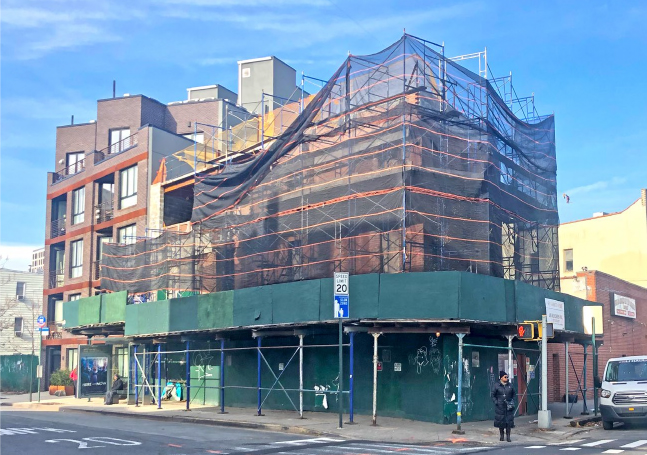Gilad Selling Off Parts of His Brookland Portfolio
By Chava Gourarie February 1, 2019 6:28 pm
reprints
Boaz Gilad is selling off a big chunk of his holdings, including properties under development and vacant land, Commercial Observer has learned.
TerraCRG is marketing the Brookland Capital portfolio, the brokerage confirmed, including five residential properties in Brooklyn that are currently under construction.
Gilad’s Brookland Capital is facing default in Israel, where he owes $40 million to bondholders. Gilad announced in November that he could not make his bond payments beginning in 2019, and has since ceded control of the entity that controls his operations in Israel.
Gilad has also defaulted on several construction loans to U.S. lenders, according to a notice filed this week on the Tel Aviv Stock Exchange. As of late December, he was accruing between 19 percent and 24 percent interest on those loans, the documents stated.
Brookland has roughly 15 properties at various stages of development throughout Brooklyn, in addition to several recently completed projects. The majority are small to medium-sized residential projects that target first-time and millennial buyers, who are in the market in the under $1 million range, Ofer Cohen, head of TerraCRG, said.
Cohen explained that Brookland is restructuring its portfolio. “This is the kind of situation where you take the entire portfolio, and you finish whatever you can finish, you sell some to create some liquidity, and you recapitalize the rest,” Cohen said. “That’s really the plan that they’re going through right now.”
The Brooklyn properties for sale include 99 Grove Street in Bushwick, where plans for a 21-unit residential building have been approved; and 658 Washington Avenue and 807 Washington Avenue in Prospect Heights, where two projects are under development, with five units and seven units, respectively.
Cohen said that Gilad’s plan to target the entry-level market in secondary neighborhoods was on point, but that there were too many projects to handle at once. “Each one of those deals is okay on its own,” Cohen said. “It’s just that when when you when you combine it all together, you know, it was a little bit too much to execute.”
Sources said that Gilad was also in the market to sell some of his construction debt as well, but that could not be confirmed by press time.
The proceeds of the property sale will likely go to paying down debts, and the outcome of this restructuring is unclear. The report to the Tel Aviv Stock Exchange estimates that only $8 million to $12 million could be recouped over three years from the bond portfolio (of which the three properties mentioned are a 99part), suggesting that Israeli bondholders could be taking a 75 percent loss on their interest.
Gilad declined to comment.
With additional reporting by Cathy Cunningham.



